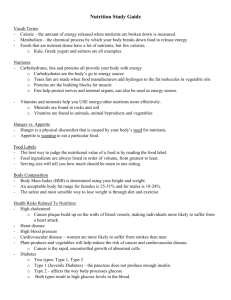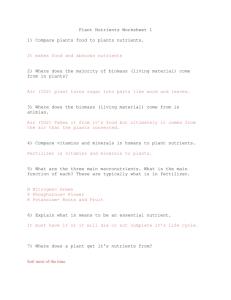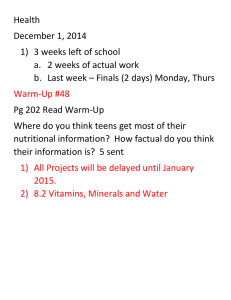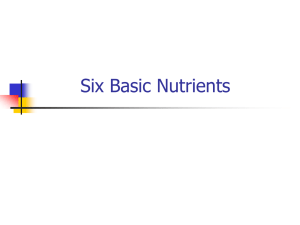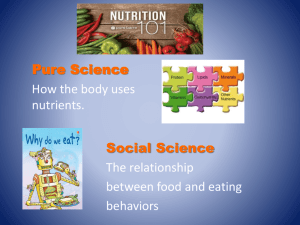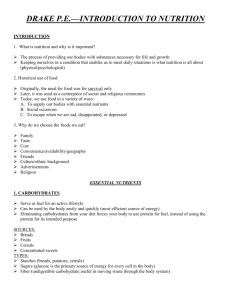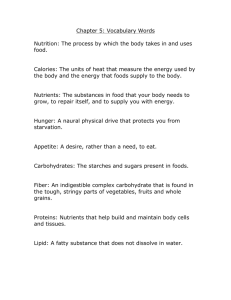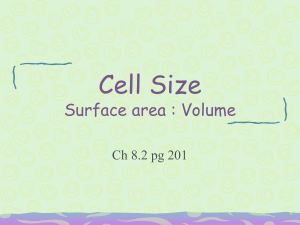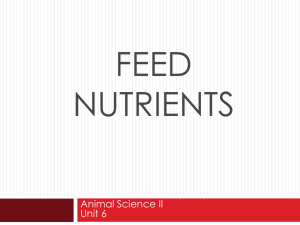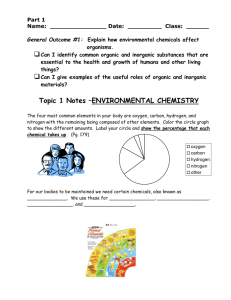The 6 Nutrients PowerPoint handout with holes - Canon
advertisement
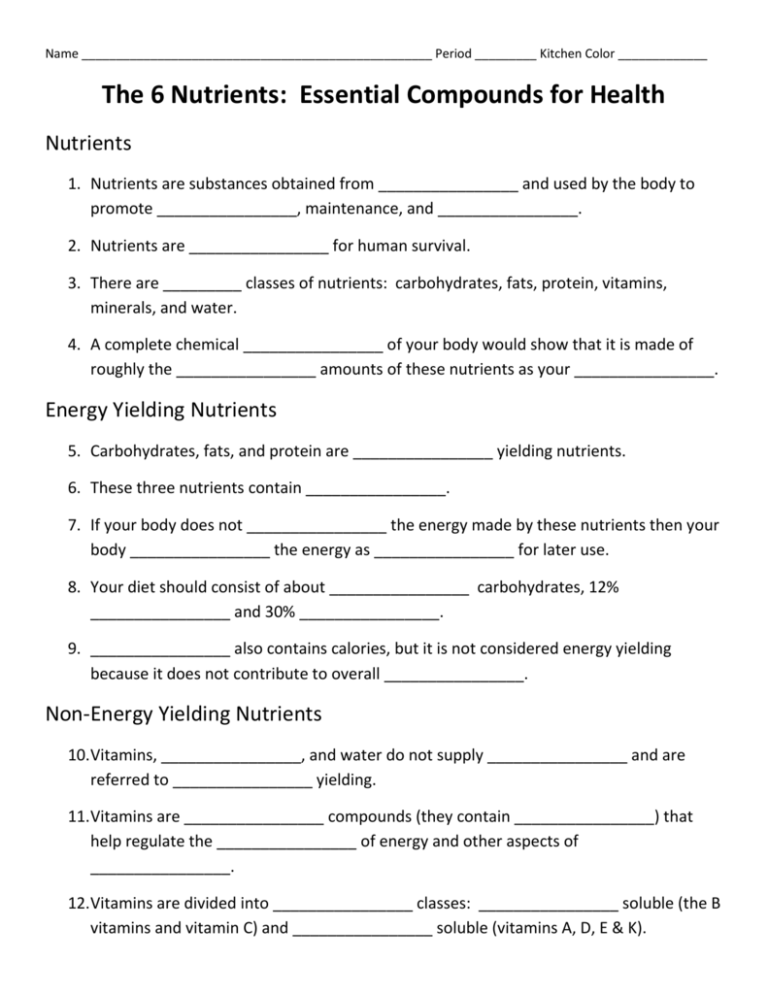
Name ___________________________________________________ Period _________ Kitchen Color _____________ The 6 Nutrients: Essential Compounds for Health Nutrients 1. Nutrients are substances obtained from ________________ and used by the body to promote ________________, maintenance, and ________________. 2. Nutrients are ________________ for human survival. 3. There are _________ classes of nutrients: carbohydrates, fats, protein, vitamins, minerals, and water. 4. A complete chemical ________________ of your body would show that it is made of roughly the ________________ amounts of these nutrients as your ________________. Energy Yielding Nutrients 5. Carbohydrates, fats, and protein are ________________ yielding nutrients. 6. These three nutrients contain ________________. 7. If your body does not ________________ the energy made by these nutrients then your body ________________ the energy as ________________ for later use. 8. Your diet should consist of about ________________ carbohydrates, 12% ________________ and 30% ________________. 9. ________________ also contains calories, but it is not considered energy yielding because it does not contribute to overall ________________. Non-Energy Yielding Nutrients 10.Vitamins, ________________, and water do not supply ________________ and are referred to ________________ yielding. 11.Vitamins are ________________ compounds (they contain ________________) that help regulate the ________________ of energy and other aspects of ________________. 12.Vitamins are divided into ________________ classes: ________________ soluble (the B vitamins and vitamin C) and ________________ soluble (vitamins A, D, E & K). 13.Minerals are ________________ compounds (do not contain carbon) that make up parts of your _______________ (like bones and ________________) and perform various body ________________. 14.________________ carries materials to and from ________________. It provides the warm, ________________ rich bath that cells need to thrive. 15.Vitamins and minerals are found in ________________ (very small) amounts in foods. Food can contain very little water (5% in ________________) to almost all water (96% in ________________). My Plate & Nutrients 16.Most foods contain a ________________ of all the nutrients, however some areas of the plate provide ________________ of certain nutrients than others. 17.Grains: good source of ________________. 18.Vegetables: good source of ________________, carbohydrates and ________________. 19.________________: good source of vitamins, ________________ and water. 20.Meat and beans: good source of ________________, minerals, and ________________. 21.________________: good source of protein, ________________, and fat. 22.Oils: good source of ________________.
